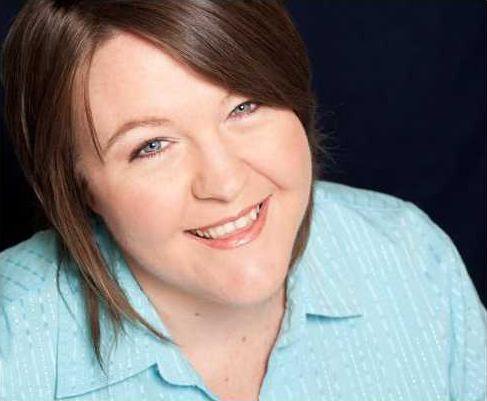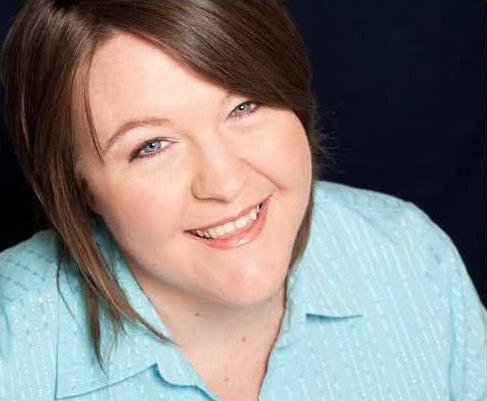Barton Community College’s theatre department will host a Drama Workshop seminar with speaker LaVonne Canfield from 1-3 p.m. on Feb. 18, in the Fine Arts Auditorium. Canfield will start her workshop with a brief history and background of Drama Therapy within the Creative Arts Therapy framework. Her session will go on to cover experiential learning activities, examples of Drama Therapy work with the incarcerated, how drama therapy fits into a variety of settings and pathways to becoming an RDT. She will close with an activity on the importance of self-care in the professions which involve helping others.
Canfield holds a Masters, is a Registered Drama Therapist (RDT) and Certified Compassion Fatigue Professional (CCFP). She is continuing her studies completing a post-graduate certificate in Trauma Studies at the Justice Resource Institute in Boston, Mass. Currently, Canfield operates her own business out of Manhattan called Encore Theater Works & Drama Therapy where she works with individual clients, corporations of all sizes and facilitates theater workshops at The Manhattan Arts Center. Prior to running her own business, Canfield was a fulltime Drama Therapist at the Kansas Juvenile Correctional Complex. She worked with incarcerated adolescents housed in specialty units for youth needing mental health support.
Canfield found her passion for drama therapy while attending Florida International University. She began to work with ArtSpring to provide art education to incarcerated women.
“I was directing shows, theatre workshops, facilitating mixed media workshops and discovered it was changing their world perspective,” she said.
When Canfield saw this, she began researching and found out about Drama Therapy. This led her to Kansas State University where she received her MA in Drama Therapy.
“Drama therapy is all about the embodiment of activities,” she said. “The belief among drama therapists is when we get into our bodies and move through different activities it works a lot more rapidly than when we only talk about it or keep our thoughts separate from our physical experience.”
Canfield gave an example on one of many ways drama therapy is used. In the prisons, they would start with a time of checking in on how everyone is doing. One day the responses she got were feelings of disconnection. Instead of talking about this feeling they got up and built physical pictures of that feeling.
“We would have a person that was feeling disconnected take three other people and put them in positions of what disconnect looked like physically to them,” Canfield said. “Then took a step back and talked about it.”
While working in the prisons as a Drama Therapist, Canfield made one of her favorite discoveries.
“Working with a team of health professionals when dealing with clients that have resistance, a lot of times there will be more resistance to one of the members of the team,” she said.
An example would be inmates saying “I don’t want to talk to a psychologist because I am not crazy” or “I don’t want to work with a drama therapist because she will make me get up and do crazy things.” They discovered that in working with one of the health professionals, often the inmates would have an experience which made them want to talk with the people they saw as “crazy”.
“We had someone who was absolutely shut down and would not talk to the psychologist,” Canfield said. “Then we rewrote Alice in Wonderland and performed it.”
Through the experience of performing the individual had feelings come out which made them less resistant and more open to talking with the psychologist.
“The psychologist came to the performance and told them how great their performance was; suddenly, this trust and bond begins to form between them,” she said. “Through the trust that was built she requested to see the psychologist and they ended up working on things that they couldn’t before with the resistance.”
The reverse applied to Canfield as well. Once she was informed that an individual had a son and is struggling with the disconnection. She approached them to see if maybe they wanted to record some bed time stories to send to their son.
“They were able to reconnect with their son in a way that couldn’t have happened without a creative approach,” she said. “But they never would have opened up to a creative approach if the psychologist wouldn’t have suggested it.”
Canfield commented how that was the most beautiful thing about working with a team.
After becoming a RDT she decided to further her credentials by becoming a CCFP. A CCFP works with therapists, psychologists and other healing professionals in dealing with the fatigue and emotional demands of their profession.
“As healing professionals, we often get burned out without recognizing that we are carrying the stress, trauma and difficult stories of our clients,” Canfield said. “This has given me the opportunity to not only share the power of drama therapy with clients but to build communities of more resilient mental health care providers.”
Canfield is excited to share her field with others and to connect with other health professionals. She also encourages all those who are interested to attend and if they don’t feel comfortable participating but would rather watch from the side that is okay.
Barton’s Theatre Director Dr. Rick Abel requests RSVP’s by contacting him at abelr@bartonccc.edu or (620) 792-9333.
Barton Theatre Department to present Drama Therapy Workshop





